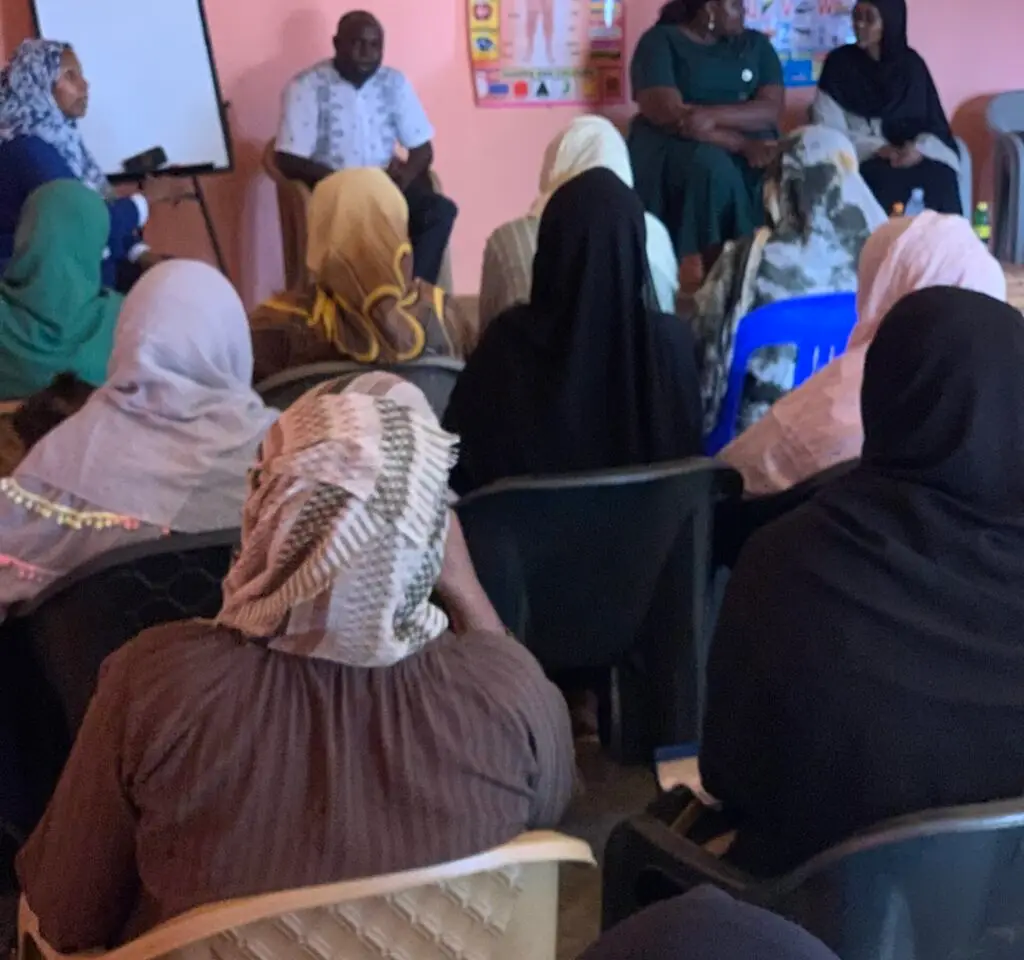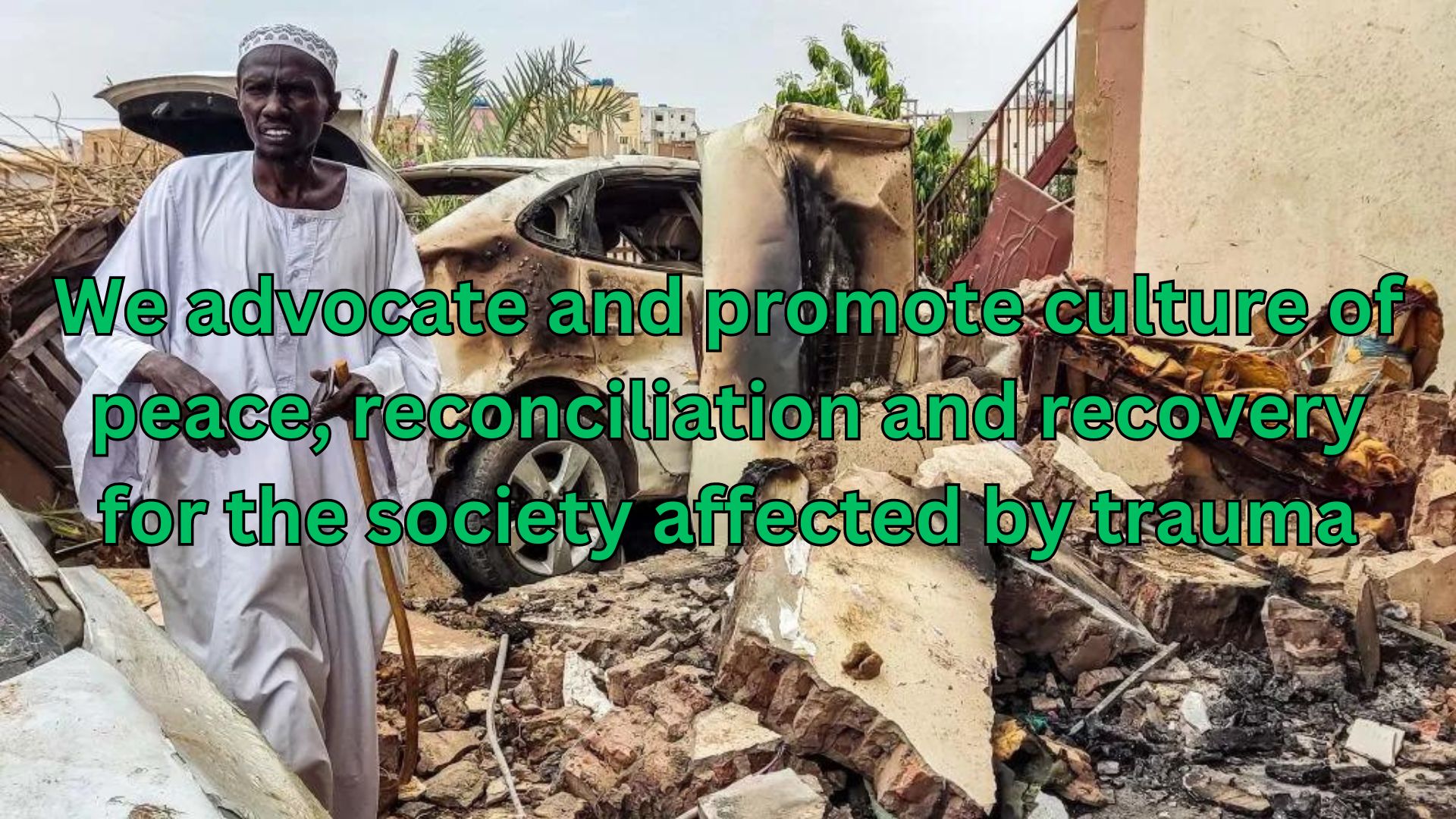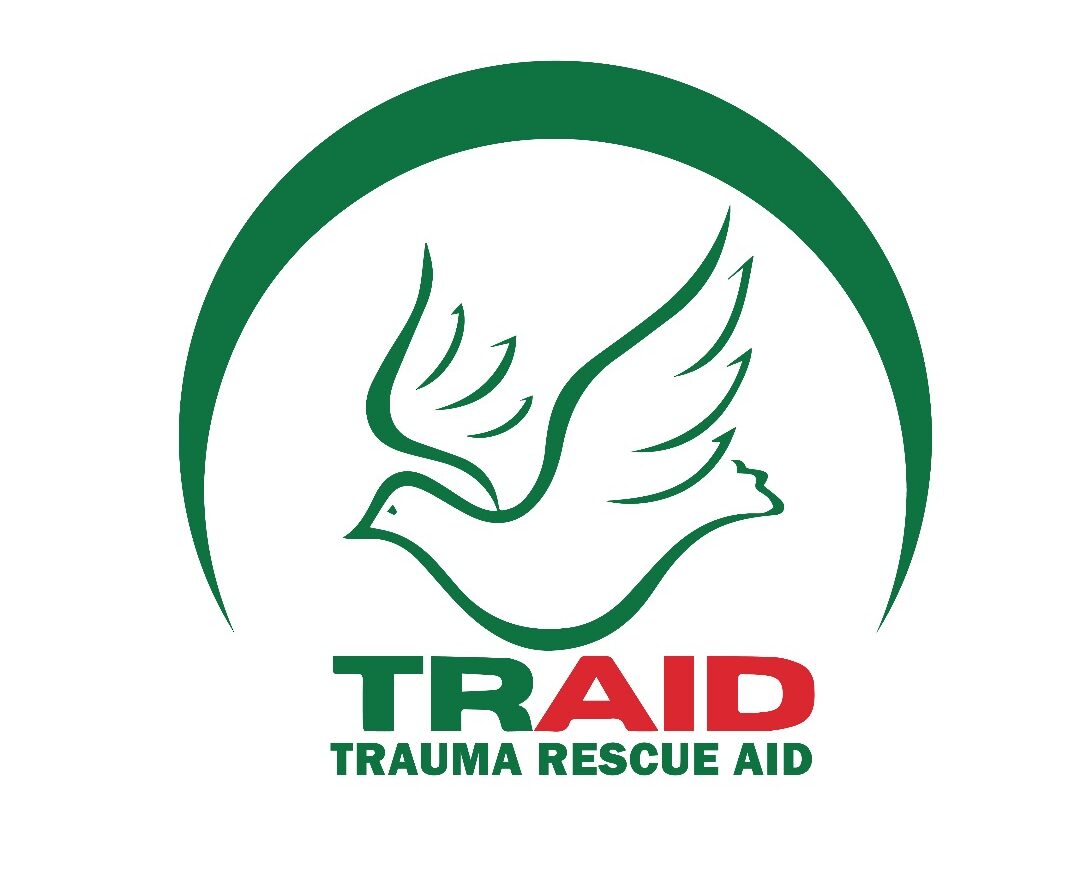Our History
How it All Began
Trauma Rescue Aid (TRAID) was founded in 2023 by Kizito Kuku, university student from Nuba Mountain, Sudan, studying at Cavendish University in Uganda. The initiative emerged in response to the devastating conflict that erupted in Sudan on April 15, 2023, which forced countless families, including women and children, to flee to neighboring countries such as Uganda, South Sudan, and Chad in search of safety and refuge.
During this time, Kizito was doing his internship with the Darfur Network for Human Rights (DNHR) an organization focused on monitoring, documenting, and reporting human rights violations in Sudan.
At the office, monitoring team conduct daily interviews with victims and survivors of sexual violence and torture who fled from Sudan. The victims could tell their stories very emotionally, often breaking down in tears as they explain their painful experiences and monitors would cry alongside the survivors, However, DNHR’s mandate is focused on documentation and pursuing Justice and accountability, leaving survivors without the psychosocial support they so desperately needed.
Seeing this gap, Kizito felt compelled to act. He realized that these survivors are struggling and needed more than just their stories recorded. Many did not speak English, only Arabic, making it even harder for them to access local services or integrate into their new environment. They needed counseling and emotional support.
Kizito shared his vision with his close friends, Kafi Abdelkhier, Malik Kafi (who was studying in South Korea at the time) and Barona Jagod, a fellow student at Cavendish University and a passionate marriage counselor and refugee.
Our First Online Meeting – June 14, 2024
Trauma Rescue Aid (TRAID) was born out of a shared commitment to stand with Sudanese refugees who were forced to flee their homes due to the conflict that erupted in Sudan in April 2023. As young refugees ourselves, we understood the trauma, fear, and uncertainty that came with displacement. We knew that healing and recovery would require more than just survival. It would require community, care, and purpose.
On June 14, 2024, we held our first online meeting with Jennie, Malik, Barona, Phillip, and myself. We discussed to them the harsh realities faced by Sudanese refugees in Uganda and we shared our vision and plan. At the time, we called ourselves Trauma Recovery Aid.
With guidance and encouragement from Jennie and Phillip, we started our community work with our own contributions and later we changed the name to what is now (Trauma Rescue Aid TRAID) A refugee-led grassroots initiative focused on trauma counseling, peacebuilding, and Human Right advocacy.
That first meeting was the beginning of our movement to bring healing and support to those affected by war and displacement.

Our Journey
Milestones in Our Achievements.
In 2024, We secured formal registration as a legal entity with the Uganda Registration Services Bureau (URSB), reinforcing our commitment to creating impactful, community driven programs.
Human Rights Advocacy Campaign . January 2025

In January 2025, we successfully hosted a Human Rights Advocacy Campaign in collaboration with the Darfur Network for Human Rights (DNHR).
The event took place at our center in Seeta, Mukono, and was a pivotal moment in our ongoing commitment to human rights and social justice.
With the support of DNHR, the campaign attracted 56 attendees, the majority of whom were women and youth, many of whom were survivors of violence and displacement. The campaign centered on advocating for justice and accountability and the importance of documenting human rights abuses and amplifying the voices of those silenced by the conflict and displacement in Sudan.
Our Journey
First Milestone. July 2023 Activities

In July 30, 2023, we conducted our first outreach activities in response to the urgent needs of Sudanese refugee families in Uganda.
Distribution of Food Packages
We distributed a total of 6 food packages to 6 households, benefiting approximately 26 individuals. Each package included essential food items such as rice, beans, cooking oil, sugar, salt, and maize flour. The primary goal of the food distribution was to ensure that vulnerable families, particularly those with children, had food for their children.
Counseling Services
In addition to the food aid, our counselor Barona provided counseling sessions for each of the families, focusing on the emotional and psychological needs of the refugees. The sessions addressed critical issues such as trauma, stress, and emotional well-being. Special attention was given to the most vulnerable groups, including children and women, as part of our ongoing commitment to support their healing and integration into the community.

Empowerment and Fight for Justice"
When people are tortured, their voices are taken away from them. We help survivors heal, reclaim their stories, and fight for justice and change. we focused on more than just emergency relief. Our aim is to empower and support long-term recovery for survivors. We want a future where every survivor not only heals but also stands as a source of hope in their community. Join us in this mission to turn trauma into triumph, working towards peace and justice in the communities we serve.
50%
Your support makes a real difference for those we help. Whether it's donating, volunteering your time, or sharing our mission, every action is impactful. Together, we can foster a spirit of compassion that uplifts individuals and strengthens our communities.
50%
Join us in shaping the future. Your participation can help us continue our work and pave the way for lasting change. Let's write the next chapters of our story together.
